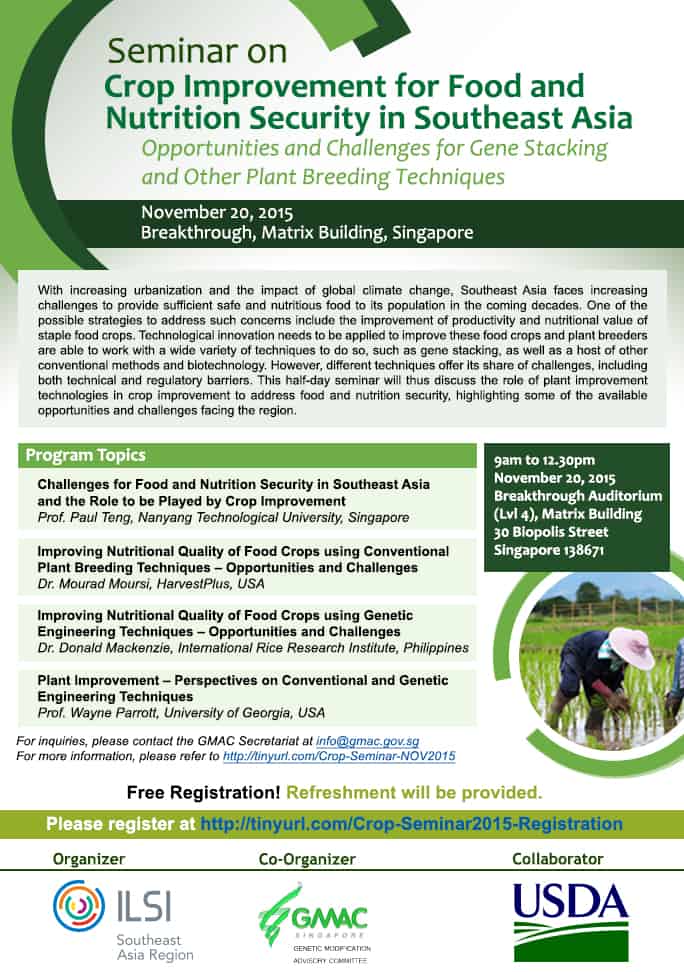Singapore, Singapore
20/11/2015
Breakthrough Auditorium (Level 4), Matrix Building
OVERVIEW
With increasing urbanization and the impact of global climate change, Southeast Asia faces increasing challenges to provide sufficient safe and nutritious food to its population in the coming decades. One of the possible strategies to address such concerns include the improvement of productivity and nutritional value of staple food crops. Technological innovation needs to be applied to improve these food crops and plant breeders are able to work with a wide variety of techniques to do so, such as gene stacking, as well as a host of other conventional methods and biotechnology. However, different techniques offer its share of challenges, including both technical and regulatory barriers. This half-day seminar thus discussed the role of plant improvement technologies in crop improvement to address food and nutrition security, highlighting some of the available opportunities and challenges facing the region.
ORGANIZER
CO-ORGANIZER
Genetic Modification Advisory Committee (GMAC), Singapore
COLLABORATOR
U.S. Department of Agriculture (USDA)
PROGRAM
The program is available here.
REPORT
The report is available here.
PRESENTATIONS
Challenges for Food and Nutrition Security in Southeast Asia and the Role to be Played by Crop Improvement
Prof. Paul Teng, GMAC/NTU, Singapore
PDF
Improving Nutritional Quality of Food Crops Using Conventional Plant Breeding Techniques – Opportunities and Challenges
Mr. Ashish Wele, HarvestPlus, USA
PDF
Improving Nutritional Quality of Food Crops Using Genetic Engineering Techniques – Opportunities and Challenges
Dr. Donald MacKenzie, International Rice Research Institute, Philippines
PDF
Plant Improvement – Perspectives on Conventional and Genetic Engineering Techniques
Prof. Wayne Parrott, University of Georgia, USA
PDF
